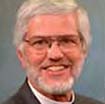According to the Lukan account of the beginning of Jesus’ ministry, when Jesus came to the synagogue of Nazareth and “stood up to read” (4:16), “the scroll of the prophet Isaiah was given to him” (4:17).
He read what he was given. And then using that text, side by side with two other texts that he recalled to his hearers, he preached.
Will Willimon, writing in his fine Peculiar Speech: Preaching to the Baptized, already argued fifteen years ago that this narrative of Nazareth shows us Jesus himself as a lectionary preacher. Perhaps. It is a wonderful idea. But whether or not Luke thought that the passage from Isaiah 61 was the haftarah of that sabbath, the reading from the prophets meant to stand next to the appointed torah portion in all the various lectionary cycles of the synagogue, the Nazareth narrative does show us something important. Jesus, too, is subject to the discipline of the word of God as something given. He is handed Isaiah. He does not ask for it. Perhaps he finds a specific text, but he finds it in Isaiah.
In Luke, indeed, the whole event of Jesus’ coming–of his suffering, death, and resurrection–was both necessary and according to the scriptures. The Jesus of the Lukan Nazareth narrative already demonstrates that idea. The given word of God, a word we could not make up or choose, a word embodied in Jesus, is full of good news and release for the outsiders and the poor. In Jesus Christ, the given scripture is “today … fulfilled in your hearing” (4:21).
The discipline of the word of God as something given: that is what the Christian lectionary is about. Preachers today also rightly follow this Lukan model. Preachers today rightly receive the lectionary as an astonishing, liberating gift.
Of course, God did not in some literal sense devise the schema of the current three-year lectionary. But the very fact of its existence, of its coming to the local assembly and the local preacher as a given–as if a keeper of the books were handing us on a given Sunday the scroll of the prophet Isaiah–can be a strong symbol of the givenness of the word of God.
There are yet more reasons for a preacher to use the lectionary:
- The breadth-of-the-scripture reason: The lectionary leads the congregation into a richer encounter with the scriptures than would be possible if only local choices or the local preacher’s predilections were followed. It forces the preacher to preach on matters which she or he would not necessarily choose. Indeed, the Revised Common Lectionary represents a fuller reading of the scriptures than has ever been present any Sunday Bible reading scheme throughout the whole history of the Christian church.
- The assembly-empowerment reason: The lectionary allows the entire congregation to know what will be read on Sunday, so that music planning, parish education, weekday praying, and simple preparation for coming on Sunday are possible for everybody. The texts of Sunday do not belong to the preacher alone, but to all the church.
- The ecumenical reason: The lectionary unites this local congregation with a wide ecumenical practice and thus enables local ecumenical study groups to prepare together. The lectionary thus symbolizes a wider, given Christian unity, even if everybody does not yet use it.
- The Christological, Trinitarian and Sunday reason: the lectionary has been organized so that the scriptures every Sunday bring the Christological “Today!” of Luke 4 to expression. More: the scriptures of a given Sunday mean to draw us into the mystery of the holy Trinity surrounding us as we celebrate the meaning of Sunday in the death and resurrection of Christ for the life of the world. The lectionary has a hermeneutic. It is not just a random collection of readings.
- The serendipity reason: Time and again, pastors report that, to their surprise, the given readings on a Sunday were exactly what their congregation needed, even in the midst of emergent tragedies or other unexpected events. This correspondence is of course due to the “Sunday hermeneutic” of the lectionary–its continued interest in setting out the death and life of Jesus as the source of life for us all. It is also true because the best texts of the scriptures, the texts upon which the lectionary focuses, are texts that have room to hold all human sorrow into the patterns of God-given hope.
But all of these reasons come down to the first reason: the word of God as something given. God gives us each other in the churches and in the local church. God gives us the breadth of scripture, beyond what we would choose. God gives us a word that is able to hold our circumstances into hope. God gives the death and resurrection of Christ as source of life. The givenness of the lectionary serves and symbolizes all of these gifts as well.
In the lectionary, our brothers and sisters in the church hold out to us the scroll of the prophet Isaiah–or yet other books, side by side, according to the patterns of our Sundays. The preacher does not make all this up, any more than the preacher makes up meeting on Sunday or the idea of the Sunday Lord’s Supper. She or he serves the gift of God, in humility.
Dear preacher: Take the scroll and preach. It is a wonderful, liberating gift.

